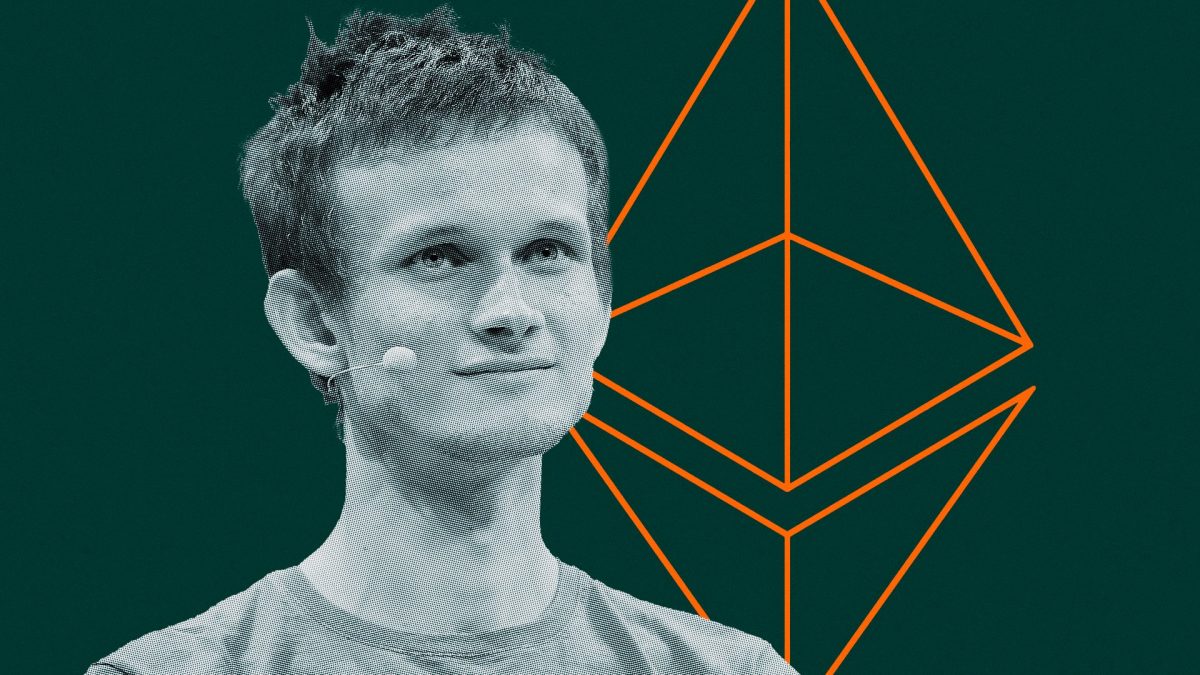Vitalik Buterin Shares His Vision for a Decentralized Ethereum
21.10.2024 11:00 1 min. read Kosta Gushterov
Vitalik Buterin, co-founder of Ethereum, is actively discussing improvements to the blockchain’s Proof-of-Stake (PoS) system in his recent essay
In his essay, labeled “Possible Futures of the Ethereum Protocol, Part 3: The Scourge,” he emphasizes the need to maintain decentralization while addressing security threats.
Buterin introduces the Scourge as a proposed upgrade aimed at reducing centralization risks in Ethereum’s staking process, which he attributes to factors like block construction centralization and the 32 ETH minimum staking requirement. He warns that if large stakers dominate due to economic advantages, smaller participants may exit the ecosystem.
To combat this, Buterin suggests decentralizing block production by shifting transaction selection from builders to stakers. He proposes that builders should only organize transactions, allowing stakers to choose which ones to include.
He also discusses alternative solutions like Multiple Concurrent Proposers (MCP), which distribute block production across various entities, making it harder for any single entity to dominate. Additionally, Buterin raises concerns about potential “over-staking,” cautioning that if the staked ETH supply rises too high, it could push stakers toward centralized platforms.
To mitigate this risk, he recommends adjusting Ethereum’s issuance curve so that staking rewards diminish if staked ETH exceeds a certain threshold, preventing large stakers from gaining excessive influence. Buterin’s proposals aim to protect Ethereum’s decentralization and long-term security as the network scales.
-
1
XRP Ledger Deploys EVM-Compatible Sidechain to Expand Multichain Utility
30.06.2025 21:00 2 min. read -
2
What the U.S. Blockchain Act Means for Crypto’s Future
29.06.2025 18:00 2 min. read -
3
Top 10 AI and Big Data Crypto Projects by Development Activity
01.07.2025 19:00 2 min. read -
4
Top 10 blockchains by transaction volume in June 2025
06.07.2025 16:00 2 min. read -
5
German State-Owned Development Bank Issues €100 Million Blockchain Bond
11.07.2025 7:00 2 min. read
Cardano and Ethereum Lead in Developer Activity as GitHub Commits Surge
Recent GitHub data reveals which blockchain ecosystems and individual projects attracted the most developer attention last week—a key signal of long-term project strength.
Tether Ends Support for Five Blockchains in Infrastructure Shift
Tether, the leading issuer of stablecoins, is phasing out support for five older blockchains.
German State-Owned Development Bank Issues €100 Million Blockchain Bond
Germany’s state-owned development bank NRW.BANK has issued a €100 million ($116.7 million) blockchain-based bond, marking one of the largest public-sector entries into digital securities in Europe.
Top 10 blockchains by transaction volume in June 2025
New data highlights a dramatic lead for Solana in blockchain activity for June 2025. According to the figures, Solana processed a staggering 2.98 billion transactions, far outpacing all other chains in the ecosystem.
-
1
XRP Ledger Deploys EVM-Compatible Sidechain to Expand Multichain Utility
30.06.2025 21:00 2 min. read -
2
What the U.S. Blockchain Act Means for Crypto’s Future
29.06.2025 18:00 2 min. read -
3
Top 10 AI and Big Data Crypto Projects by Development Activity
01.07.2025 19:00 2 min. read -
4
Top 10 blockchains by transaction volume in June 2025
06.07.2025 16:00 2 min. read -
5
German State-Owned Development Bank Issues €100 Million Blockchain Bond
11.07.2025 7:00 2 min. read


